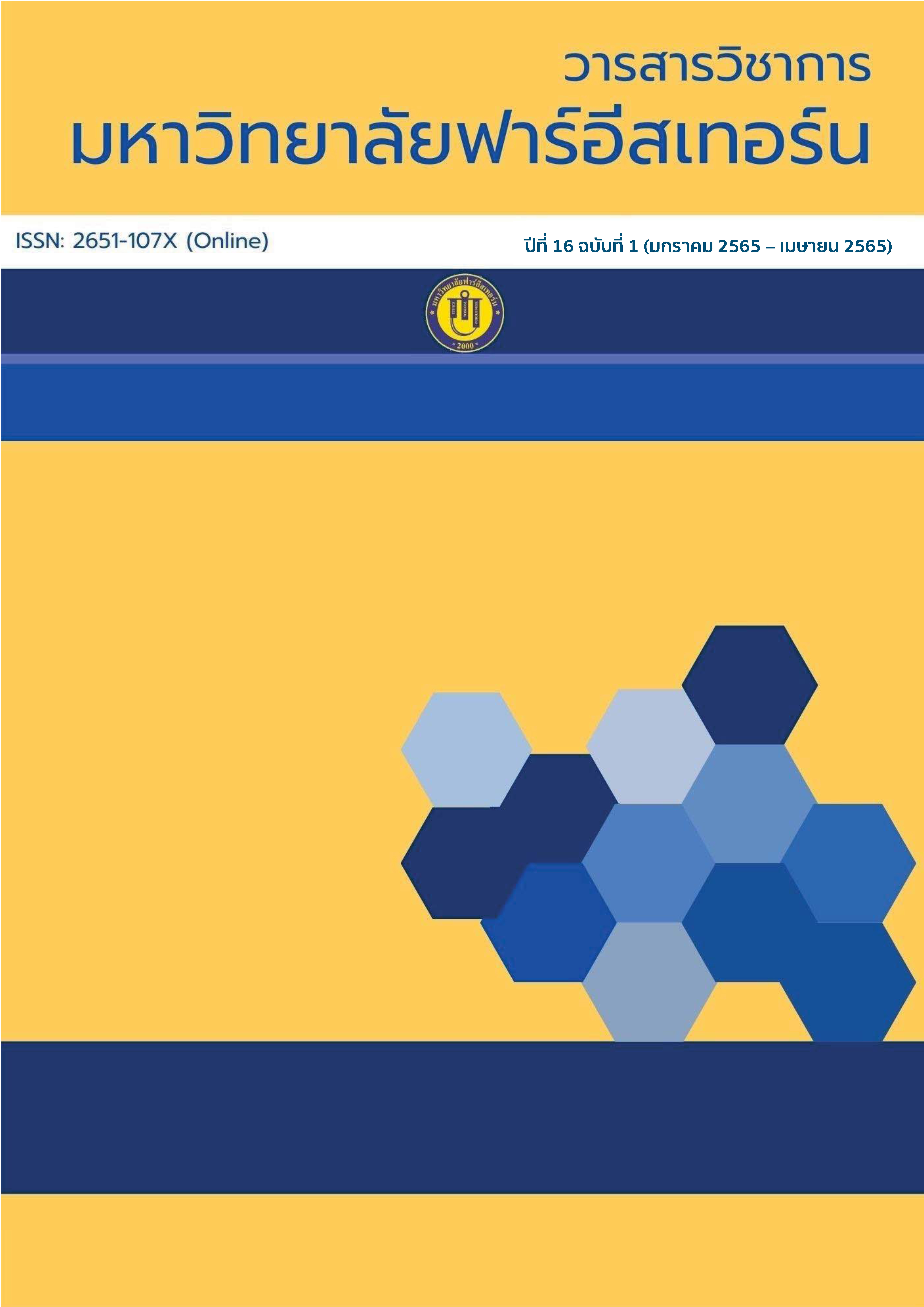The Potential of Leaders Affecting the Process of Community Economic Development in Pong Yaeng Sub-district, Mae Rim District, Chiang Mai Province
Main Article Content
Abstract
The objectives of this research were to study the level of leadership potential in Pong Yaeng Sub-district and study the potential of leaders’ relationship that affect the economic development process. This quantitative study’s sample consisted of 40 formal and informal leaders in Pong Yaeng Sub-district, Mae Rim District, Chiang Mai Province. Data were analyzed using descriptive statistics consisting of Frequency, Percentage, Mean, Standard Deviation (SD), and assuming Correlation. The results of the data analysis revealed that Community leaders were both formal and informal leaders in equal proportions who have lived in the area for 51 years or more. Most of them were males, aged 51 years and over with vocational /high vocational certificate with their position as leaders of the local government organization. In terms of the analysis of the potential of community leaders in Pong Yaeng Sub-district, Mae Rim District, Chiang Mai Province, it was found that the community leaders had a high level of potential, that were the potential for creating a process of participation, as well as the potential of community and resource management and communication capacity, respectively. Additionally, when analyzing the relationship between the potential of community leaders with the community economic development process, it was found that the leadership's potential in community and resource management were related to the community economic development process in all aspects. On the other hand, the potential of leaders in creating participatory processes was related to the community economic development process, building understanding about community economic development and mechanisms for joint management, but not in the development of the planning process. In addition, the potential of communication leaders didn’t related with the community economic development process in all aspects.
Article Details

This work is licensed under a Creative Commons Attribution-NonCommercial-NoDerivatives 4.0 International License.
1. Any views and comments in the Journal of Social Innovation and Lifelong Learning are the authors’ views. The editorial staff have not to agree with those views and it is not considered as the editorial’s responsibility.
2. The responsibility of content and draft check of each article belongs to each author. In case, there is any lawsuit about copyright infringement. It is considered as the authors’ sole responsibility.
3. The article copyright belonging to the authors and The Far Eastern University are copyrighted legally. Republication must be received direct permission from the authors and The Far Eastern University in written form.
References
Bovee, L. C. (1993). Management. New York: McGraw-Hill.
Community Organization Development Institute. (2016). The Manual of the Promotion of Foundation Economy Development. Bangkok: Bureau of Community Organization Support and Bureau of Development Communications, Department of Community Organizations Development Institute (CODI). [In Thai]
Daft, R. L. (1994). Management (3rd ed.). Fort Worth, TX: The Dryden.
Hompool, P. & Hompool, T. (1997). Human Resource Management. Bangkok: Physics Center. [In Thai]
Inta, K., Tewata, A. & Sutakham, S. (2021). SMART Leader Prototype Development in Mae Sa - Kog Ma Biosphere Reserve. Chiang Mai: Rajamangala University of Technology Lanna. [In Thai]
Lewin, K. (1939). Patterns of Aggressive behavior in experimentally created social climates. Journal of Social Psychology. 10(2).
Lewin, K., Lippitt, R. & White, K. R. (1939). Patterns of Aggressive behavior in experimentally created social climates. The Journal of Social Psychology. 10(2), 269-299.
Loetyingyot, S. (2017). The Potential Development of Community Leader for Proverty Reduction of Community in the Place of Civilization Non Soong Nakhon Ratchasima with the Philosophy of Sufficiency Economy. Academic Journal of Humanities and Social Sciences Burapha University. 25(48), 177-202. [In Thai]
Nuipakdee, W. Mae Sa – Kog Ma. Intasing, Personal communication, June 16, 2020.
Panyayong, W. & Wichairam, S. (2017). Factors Affecting Economic Development Policy Implementation at Tombon Municipality in Buriram Province. Journal of Humanities ans Social Sciences. 15(2), 265-272. [In Thai]
Senawong, C. (2015). Potential: Characteristics of Leader in 21st Century. Journal of Productivity World. Thailand Productivity Institute. [In Thai]
Tuleh, P. (2018). The Potential of Community Leader and the Participation of Community Members for the Quality of Life and Social Strengths within the Community in Narathiwat Province. Princess of Narathiwat University Journal of Humanities and Socail Sciences. 5(2), 74-86. [In Thai]
Yoosook, K. (1994). Organizational Behaviors. Bangkok: Chulalongkorn University. [In Thai]

